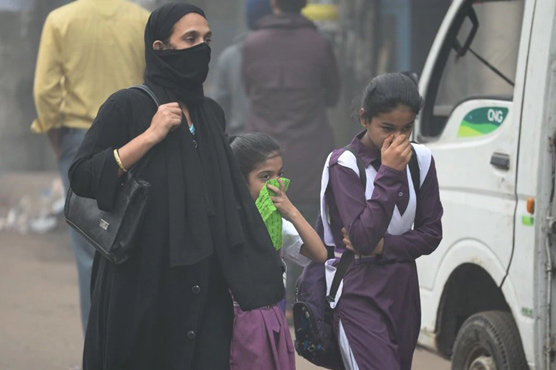Punjab Govt Orders School Closures Due to Hazardous Smog
In response to rising smog levels, the Punjab government has announced the closure of all schools and educational institutions in the province until the end of the week. Starting Tuesday, schools are transitioning to online learning to shield children from the hazardous air quality that has persisted for weeks. This emergency measure affects major divisions like Lahore, Gujranwala, Faisalabad, and Multan, where air pollution has been declared a calamity this month due to its severe health impacts.
The smog has significantly affected young children, especially those under five. UNICEF has highlighted that approximately 11 million children in the impacted districts are vulnerable to poor air quality. Children are now restricted from entering parks, zoos, playgrounds, and museums to reduce exposure. UNICEF and Pakistan’s public health officials are urging intensified efforts to curb pollution to protect public health and the environment.
The Punjab Environmental Protection Agency (EPA) has issued a notification mandating that all higher and secondary educational institutions remain closed until November 17 in areas with hazardous air quality, including DG Khan, Bahawalpur, Sahiwal, Sargodha, and Rawalpindi. Punjab Education Minister Rana Sikandar Hayat announced in a press conference, addressing public concerns about the deteriorating air quality. He emphasized that this decision aims to protect children from the harmful effects of pollution, while online teaching will be implemented to reduce educational disruptions.
Further Measures to Combat Pollution
In addition to school closures, the Punjab government has introduced measures to reduce workforce presence by 50% in government offices, aiming to decrease traffic emissions. This reduction impacts administrative secretaries and semi-government and autonomous bodies, promoting remote work as a priority. Inter-departmental meetings are being held to coordinate contingency plans and implement safeguards against pollution sources, such as vehicular emissions, to improve air quality.
Health Impact of Smog on Pulmonary Patients
Poor air quality continues to blanket urban areas, so those with respiratory conditions are significantly affected. Dr. Nasir Javed, a pulmonologist at Multan’s Nishtar Hospital, explained to Dawn.com that smog aggravates symptoms for asthmatic patients and others with chronic health issues. He noted that smog inflames airways, complicating breathing for people with chronic obstructive pulmonary disease (COPD) and chronic smokers. With high AQI levels, doctors are advising people to minimize outdoor activity and consider medication or antibiotics as needed to manage symptoms.
NDMA Issues Advisory as Smog Persists
The National Disaster Management Authority (NDMA) has issued an advisory for cities across Punjab and Khyber Pakhtunkhwa, including Lahore, Faisalabad, Bahawalpur, and Peshawar, where low humidity and high atmospheric pressure worsen air quality. The National Emergency Operation Centre actively monitors pollution levels using ground and space-based tools. Preventive guidelines for the public include wearing masks, staying hydrated, and using air purifiers indoors. Authorities also encourage carpooling and eco-friendly transport options to reduce COx and NOx emissions, which are critical contributors to pollution.

